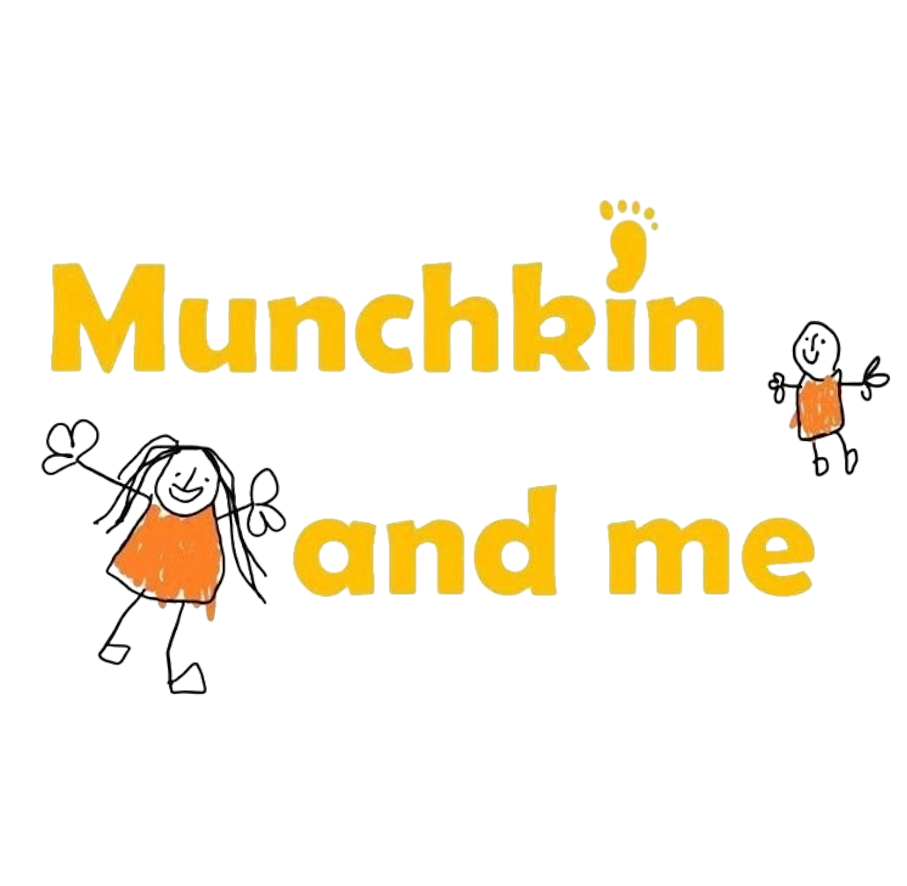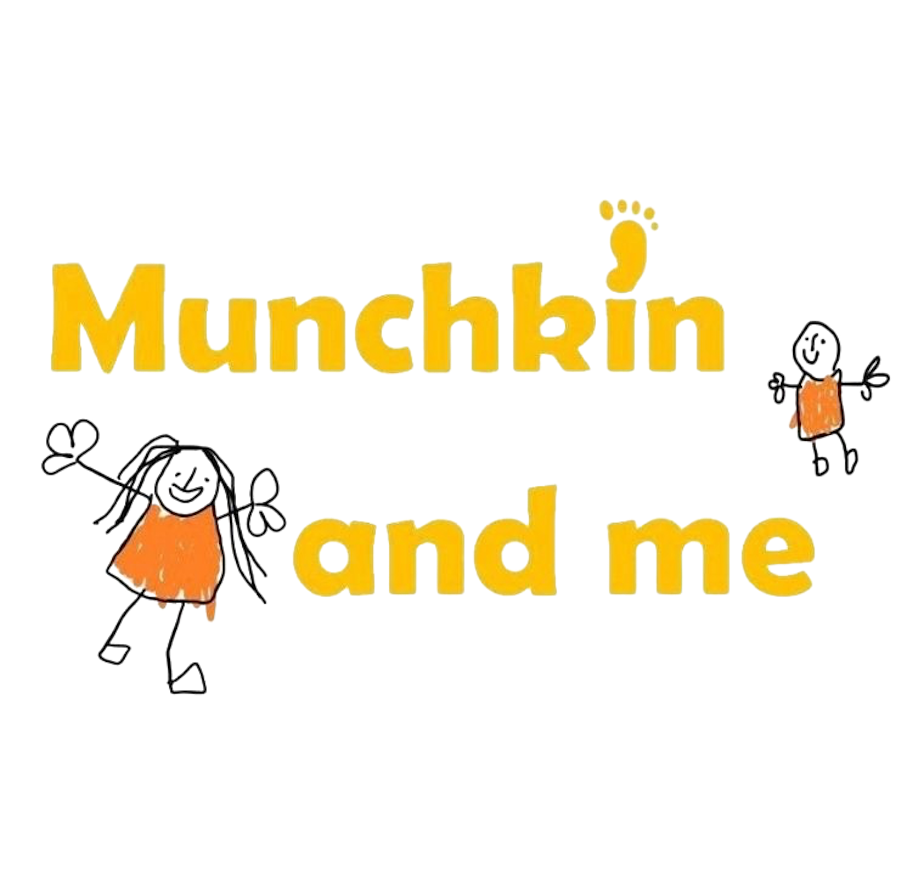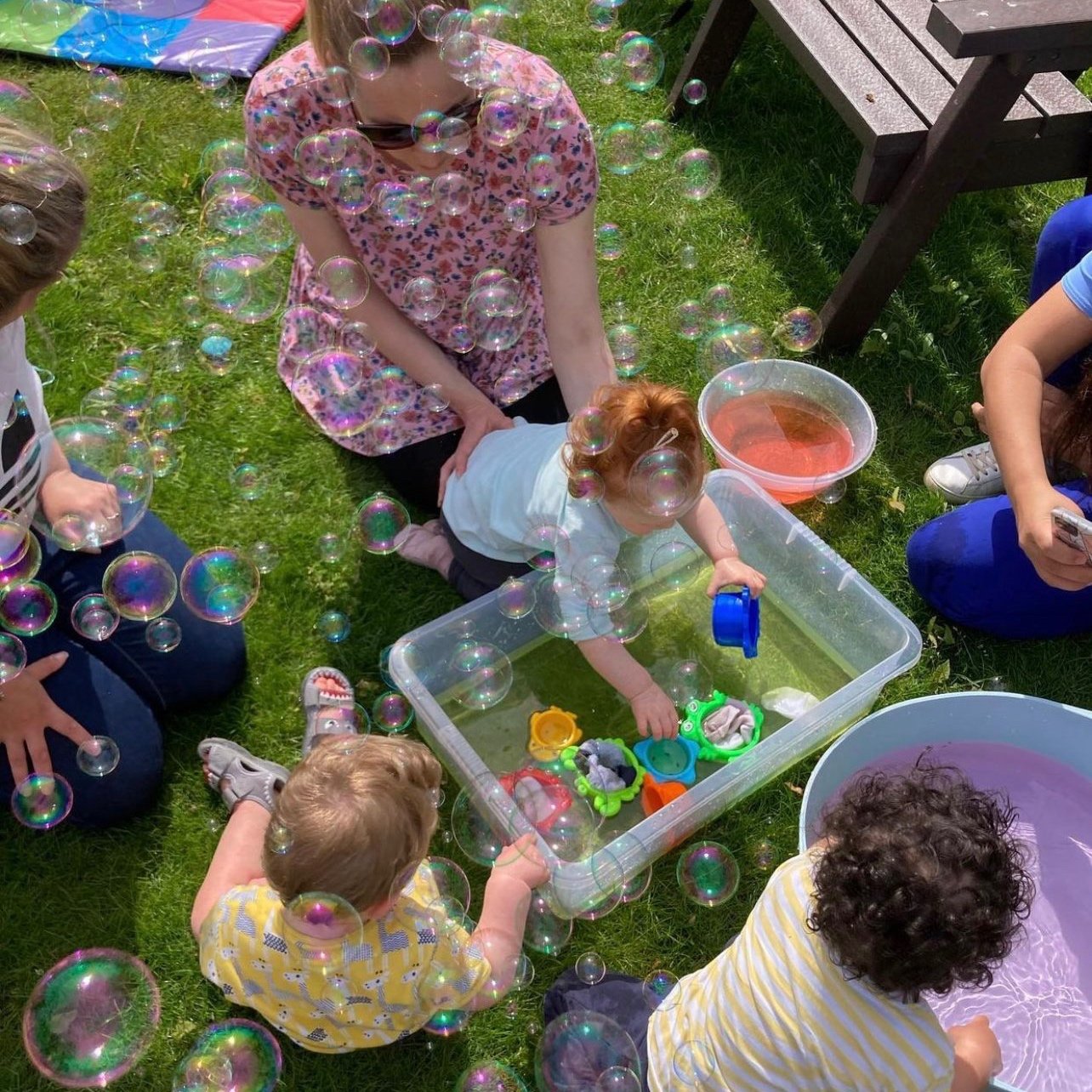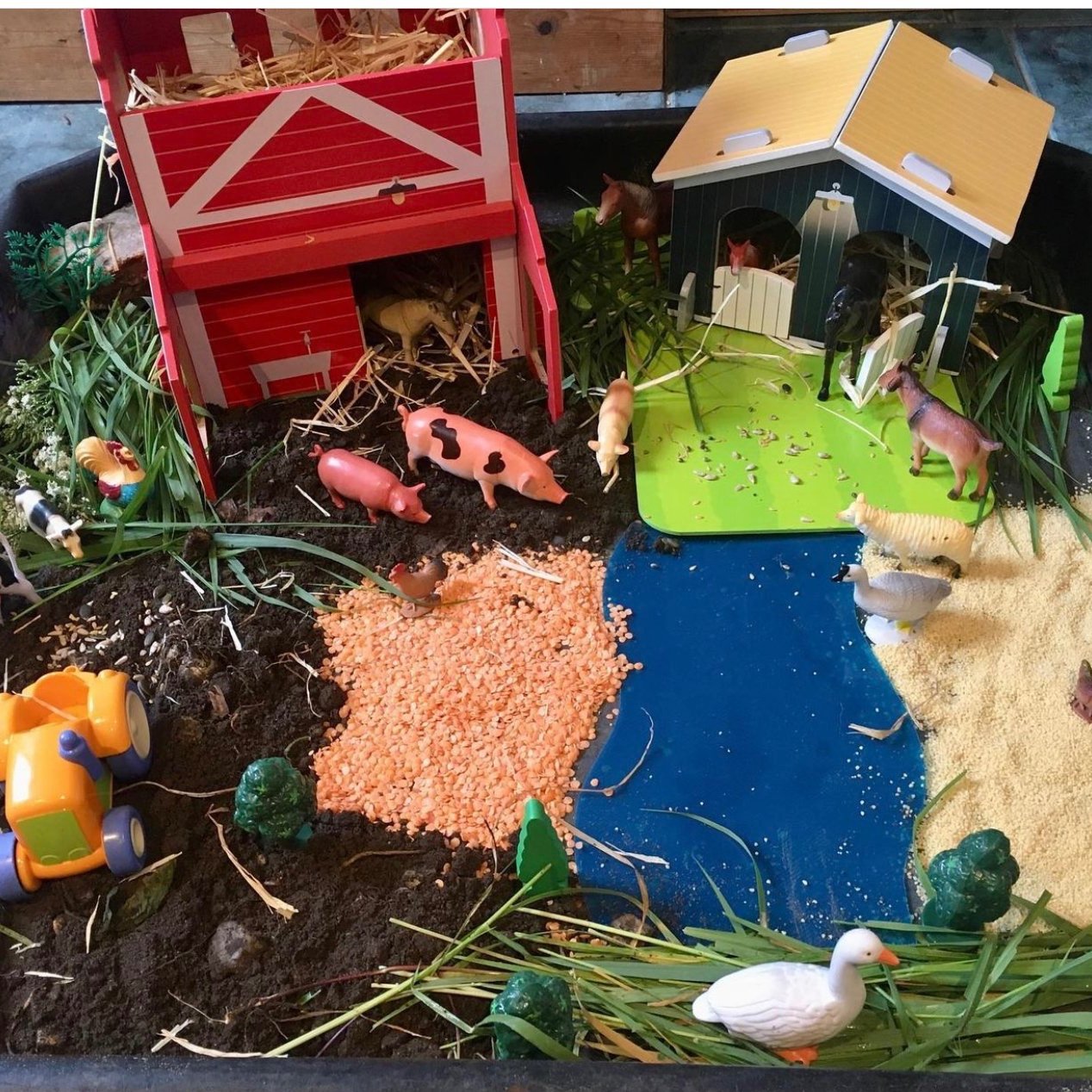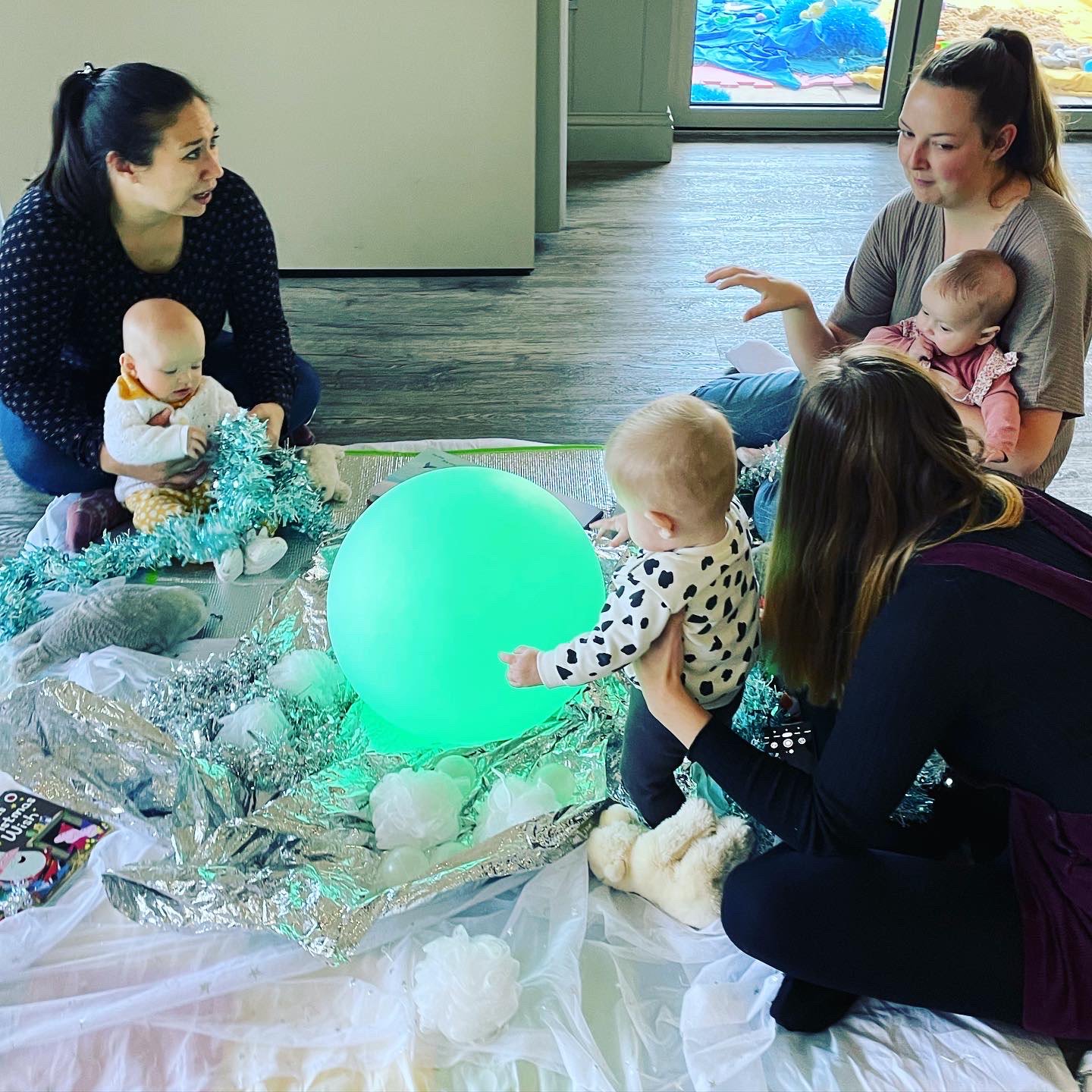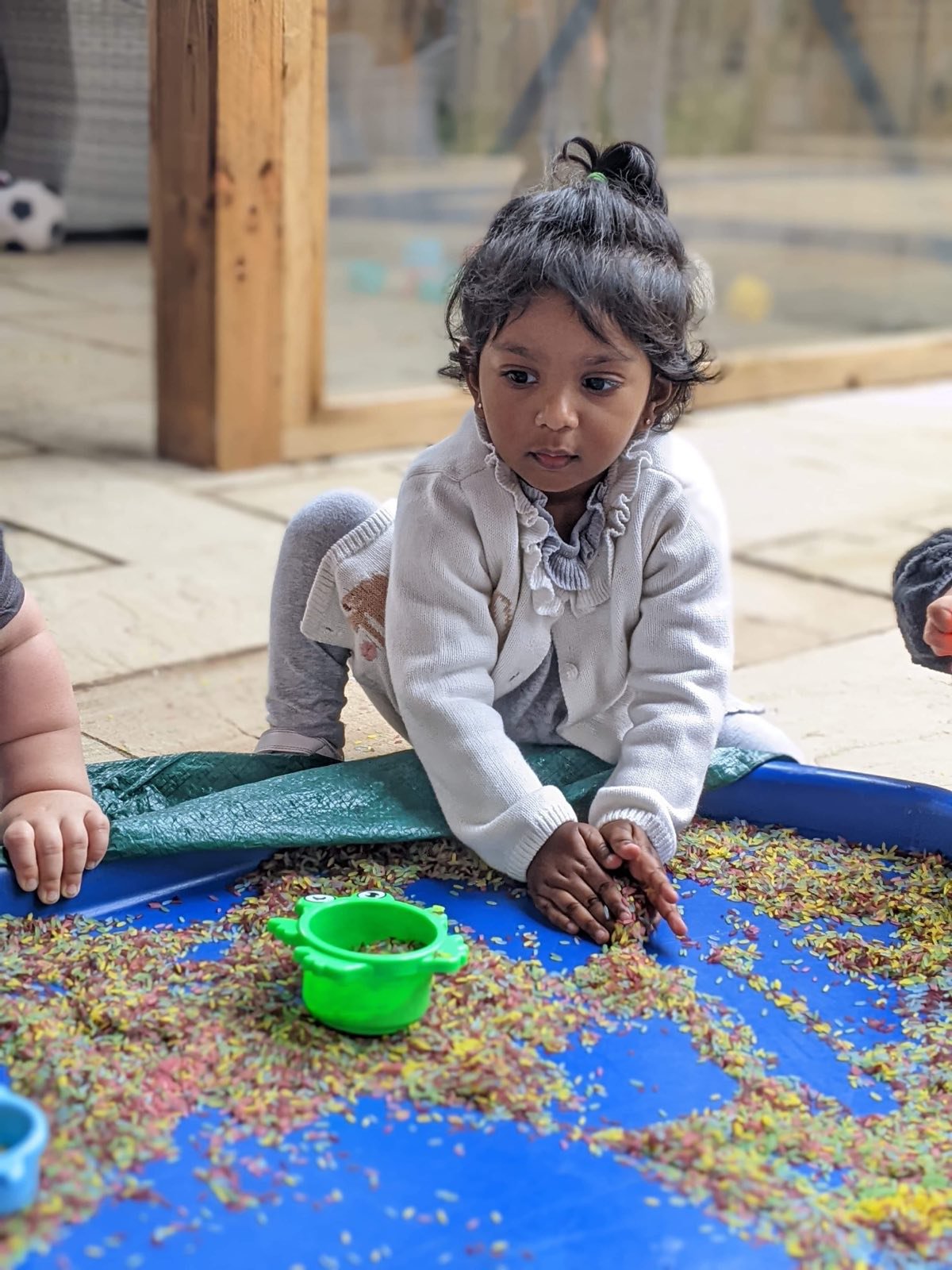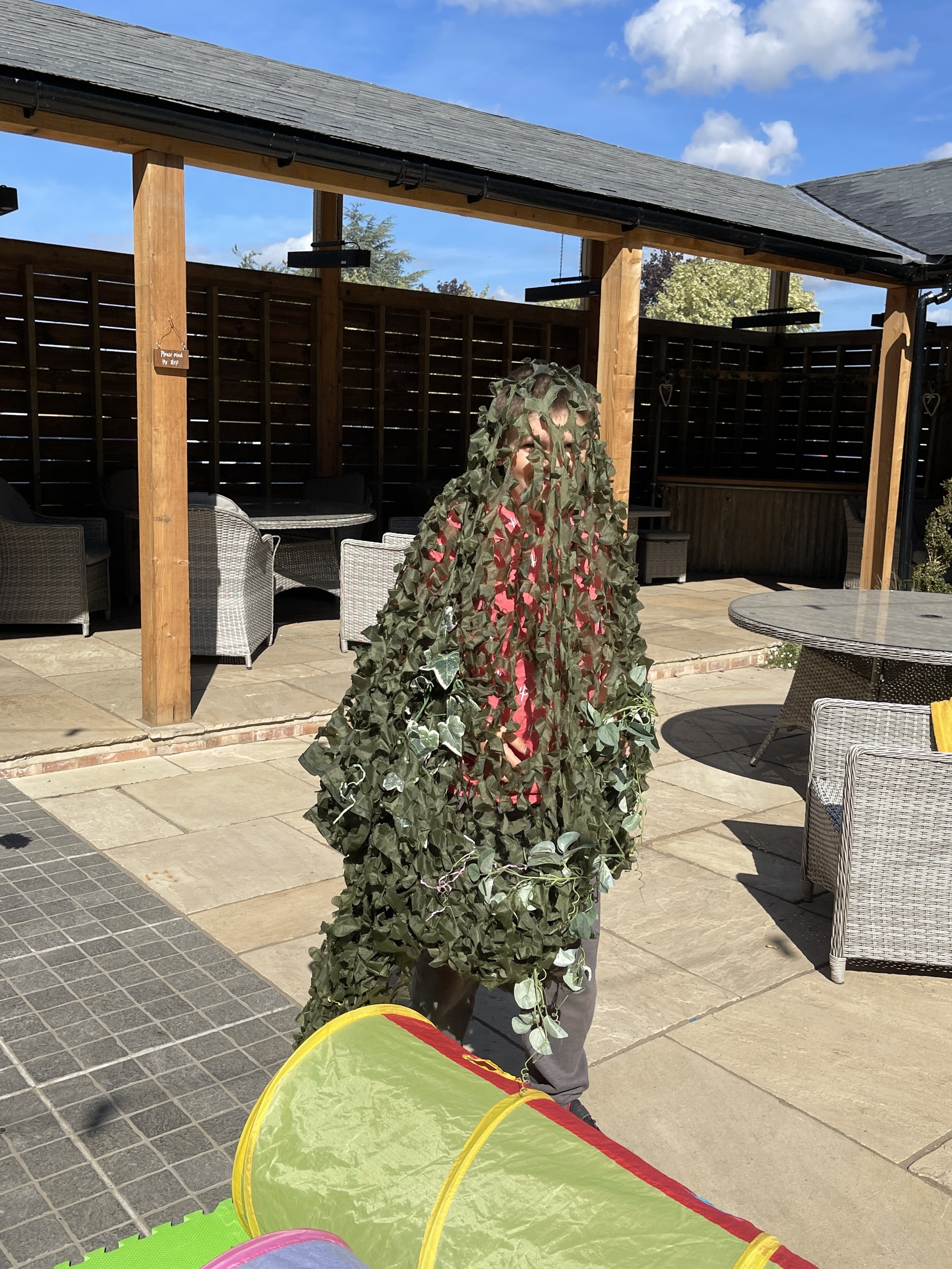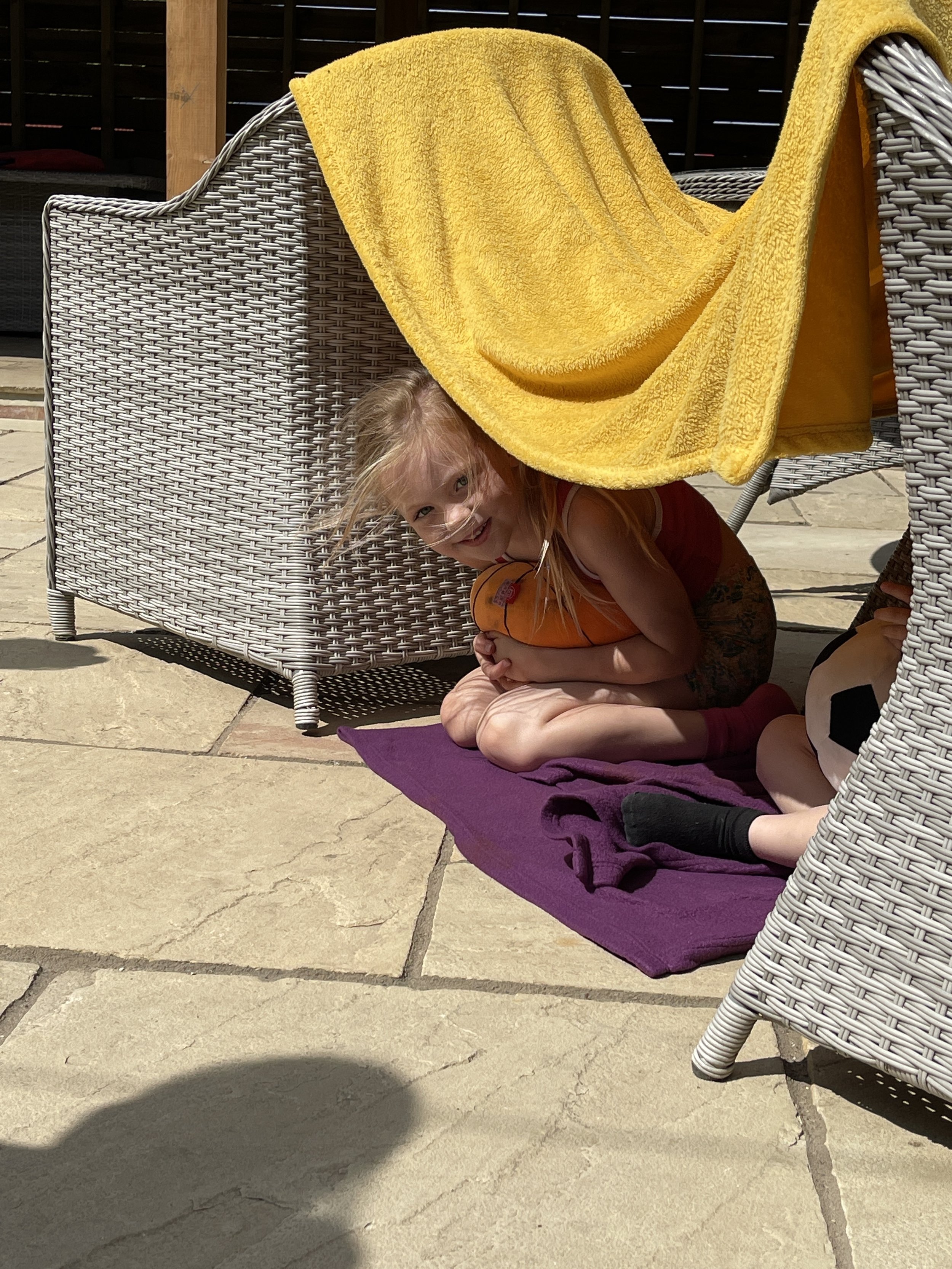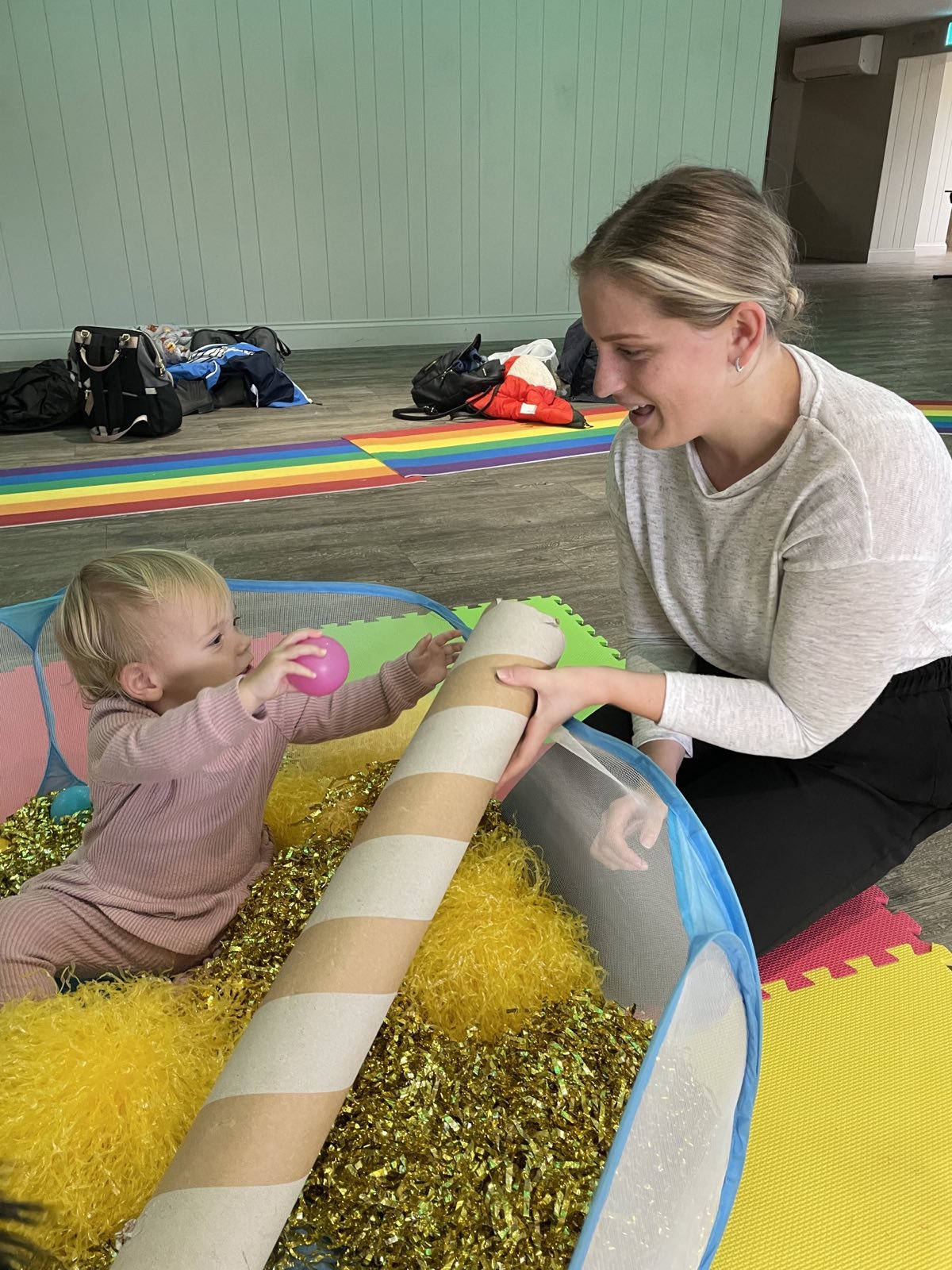Early Years and Play to learn & grow
The best possible start in life
Every child deserves the best possible start in life and the support that enables them to fulfil their potential. Children develop quickly in the early years and a child’s experiences between birth and age five have a major impact on their future life chances.
A secure, safe and happy childhood is so important. Supportive care/parenting and high quality early learning together, can give children the foundations they need to make the most of their abilities and talents as they grow up.
The Early Years Foundation Stage (EYFS) produced by the Department of Education sets the standards that all early years providers (for example, nurseries and schools) must meet to ensure that children learn and develop well and are kept healthy and safe. The EYFS was designed to promote teaching and learning to give children the best possible start and good future progress through school and life.
Whilst baby and toddler classes are not required to adhere to the EYFS, as a former teacher, Rachel felt the Importance of planning all the Munchkin and me® sessions with the Early Years Framework in mind. Especially to help support every child’s learning across all of their developmental stages and demonstrate ways that parents and carers can support their child confidently at home.
Why we do this at Munchkin and Me®? and what else we do ….
At Munchkin and Me® the sessions are designed to encourage child-led play. During the second half of each session a variety of ‘invitations to play’ are set out based on the weekly story. The activities are designed for children to choose what and how they play. In designing the structure in this way there are always lots of opportunities for children to use Play Schemas which are the repeated behaviours that we see children doing as they play such as rotating or transporting. You can read more about play schemas at the bottom of this page., there is also a short video.
EYFS - What is it?
The early years foundation stage (EYFS) sets standards for the learning, development and care of your child from birth to 5 years old.
There are seven areas of learning and development that must shape educational programmes in early years settings. All areas of learning and development are important and inter-connected.
Your munchkins development will be supported through sensory activities, games and play.
Prime Areas
Three areas are particularly important for building a foundation for igniting children’s curiosity and enthusiasm for learning, forming relationships and thriving.
These are the prime areas:
communication and language
personal, social and emotional development
physical development
Specific Areas
In Early Years environments children are also supported in four other specific areas:
literacy
mathematics
understanding the world
expressive arts and design
Communication and Language
The development of children’s spoken language underpins all areas of learning and development. Children’s back-and-forth interactions from an early age form the foundations for language and cognitive development.
Having regular, language-rich conversations with grownups and peers throughout the day will have a huge positive impact for your munchkins.
From birth, babies want to connect with others, and are eager to interact. For example, they might kick their legs ready to play a peekaboo game. Being with others helps children to build social relationships which provide opportunities for friendship, empathy and sharing emotions.
Some examples of good interactions and activities we use at Munchkin and me® include;
words
rhyme and song
repetition
body language
facial expressions
simple signs
actions
bubble play
To support children who are non-verbal we use objects, pictures, or visual cues, our magic clue box and shakers to signify it is time for our story clues song. This is also where Oscar 🦧 and Mabel 🐒 have so much fun too!
We love stories, and believe that engaging children actively in stories, non-fiction, song, rhymes and poems will help them to thrive..
We also use songs and rhymes as fun ways to explore the sounds and patterns of words. Poems with actions and repetition help children listen to the structure of spoken language and explore new words.
Also our munchkins extend language with pretend play and acting out stories. By offering props and ideas we deepen the learning, so we include imaginative play with Oscar 🦧 and Mabel 🐒, small world resources such as houses, farms or garages and open ended materials (that can be used in more than one way) such as blocks or loose parts as well as things that can be found around the home.
At Munchkin and Me® we also encourage language, communication and listening development through creativity and problem solving during activities like:
painting
exploring
crinkly paper
noise-making toys
pots and pans
musical instruments
Personal, Social and Emotional Development
Children’s personal, social and emotional development (PSED) is crucial for children to lead healthy and happy lives, and is fundamental to their cognitive (brain development).
Underpinning their personal development are the important attachments that shape their social world. Strong, warm and supportive relationships with adults enable children to learn how to understand their own feelings and those of others.
Observing, playing alongside and eventually interacting with other babies and children is a crucial part of a child’s early development.
We can help our children to manage emotions, develop a positive sense of self, set themselves simple goals, have confidence in their own abilities, to persist and wait for what they want.
Through stories, fun games, action songs and role play we can help our munchkins to learn how we look after our bodies such as washing, cleaning teeth and healthy eating. Fun ways to set good foundations for them to manage personal needs independently as they grow..
Our sessions are friendly and welcoming. We help you to support your munchkins interactions with other children; so they learn how to make good friendships, co-operate and resolve conflicts peacefully. These experiences will give your munchkins a great start to help them achieve at school and in later life.
Physical Development
Physical activity is vital in children’s all-round development, enabling them to pursue happy, healthy and active lives.
Gross and fine motor experiences develop throughout early childhood, starting with sensory explorations and the development of a child’s strength, co-ordination and physical awareness through tummy time, crawling and play movement with objects and adults.
At Munchkin and me we create games and provide (wherever possible) opportunities for play both indoors and outdoors. We provide activities to help you support your babies and children to develop their core strength, stability, balance, spatial awareness, co-ordination, motor-skills and agility.
Gross motor skills are when babies and children use their whole body for example running, jumping, balancing. These skills provide the foundation for developing healthy bodies and social and emotional well-being.
Fine motor skills are finer controlled movements that require greater precision helps with hand-eye co-ordination for example gripping and poking. These skills are later linked to early literacy.
Munchkin and Me® activities provide repeated and and varied opportunities to practise these skills , sensory toys, small world play, physical activity, arts and crafts and much more. Along the support from their adults, there are lots of fun opportunities to develop and practise new skills in each of our sessions.
Literacy
We want to help children to develop a life-long love of reading.
We use, immersive and sensory story-telling and role play to bring stories to life in our sessions. Stories encourage children to make sense of the world around them using language. We aim to encourage ah child’s early literacy skills through modelling, conversation rhyme and song with the support of their grown-ups.
We also have story books out at our sessions giving you the opportunity to share stories together. Talking about stories and pictures in books, along with asking questions helps your child’s understanding as well as increasing their vocabulary and early understanding of how language is structured.
The foundations of reading are built from birth through Language comprehension which develops when adults talk with children about the world around them, by sharing books with them (both stories and non-fiction) and through rhymes, poems and songs which can be enjoyed together.
Mathematics
We also provide our munchkins with lots of opportunities to develop a strong grounding in numbers. For example, we often count and use number songs and rhyme in our storytelling, all of which is great for laying the early foundations of mathematics.
In our sessions we will model ways to help you support your child to, develop an understanding of the numbers to 10.
We will also offer lots of opportunities for children to develop their spatial reasoning skills through games and play which help their understanding of shape, space and measures. From an early age through play, we can help our that children to develop positive attitudes and interests in maths. We provide activities which can help them look for patterns and relationships, spot connections. We encourage you and your munchkins to ‘have a go’ together, which will in turn, help your child to develop these early skills.
Understanding The World
Understanding the world involves giving children lots of opportunities to make sense of the world around them and their community.
The frequency and range of children’s personal experiences increases their knowledge and sense of the world around them. At Munchkin and me we try to recreate different settings and environments through our story themes, props and backdrops, for example stories may be about going to the shops, the farm, on a train, to the beach or even changing seasons. We also use puppets and soft toys to introduce different members of society such as police officers, shopworkers, transport drivers and nurses.
Our story settings are designed to foster your munchkin’s understanding of the diverse world around them.
Our story-based play is designed to extend your child’s familiarity with words, and enrich and widen their vocabulary. All of which will provide a great grounding for later reading comprehension.
Expressive Arts and Design
The development of children’s artistic and cultural awareness supports their imagination and creativity.
At our sessions we give babies and children lots of opportunities to engage with different arts, enabling them to explore and play with a wide range of media and materials.
We provide sensory and messy play opportunities at our sessions giving your munchkins quality and varied opportunities to see, hear, smell, touch, taste and explore which is crucial for developing their understanding, self-expression, vocabulary and ability to communicate through the arts.
We offer regular, repeated and quality experiences to help your child recognise, interpret and respond to what they hear and observe.
Learning Through Play (Schematic)
Schematic play can be seen taking place when babies and young children use repeated actions or certain behaviours as they play, explore the world and try to understand how things work.
You may sometimes sit and watch your child at play and wonder why they are repeatedly putting an object in a box or moving a toy from one place to another ….. well; Your child may well be engaging in schematic play.
Schematic play is a way that your child uses their brain to work things out. Some children may not appear to take part in schema play very often and others will do so regularly and some may seem to have dominant types of schemes play they engage in often.
We often see children showing different types of schematic play at our sessions and below are some examples of the types of schematic play you may notice too.
Transporting Schema - moving objects from one place to another, such as pushing blocks in a wheelbarrow or repeatedly carrying toys across the room.
Enclosure Schema - children may enclose toys or themselves in barriers such as building a fence around their toys, going into a box or a tent to play.
Trajectory Schema - children may repeatedly, throw or kick objects. They may repeatedly climb and jump or be engaged by running water.
Rotational Schema - when children become fascinated by turning things on or off, winding or twisting things. For example they may like to roll toys, enjoy making things spin or perhaps repeatedly roll themselves down a hill.
Orientation Schema - can be seen when children appear to want to get different views on objects, perhaps turning them around or upside down. Maybe they will hang upside down or lie down to look at things of their own accord. Perhaps using a telescope or tube to peer through at the world.
Enveloping Schema - perhaps you will see a child wrapping, covering or hiding a toy in a cloth or container. They may repeatedly cover themselves with a blanket or bury items. These are all examples of enveloping schemes being displayed.
Connecting Schema - you may notice a child who shows an eagerness to join things together. Be this by tying, sticking or stapling, joining, connecting or stacking.
Positioning Schema - lining up or arranging toys in a certain way. Perhaps arranging patterns or pathways with items.
Whilst these are the main schemas (listed above). You may notice your child engaging in other play patterns or repeated actions.
It really is wonderful to see these amazing discoveries at work as your baby and child explores the exciting world around them.
Schematic Play At Munchkin and Me®
Schematic Play At Munchkin and Me®
